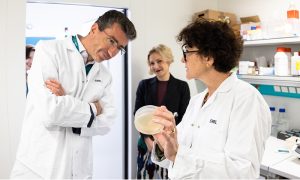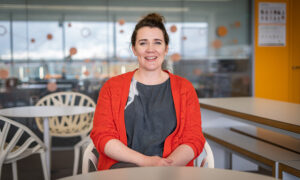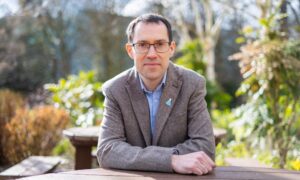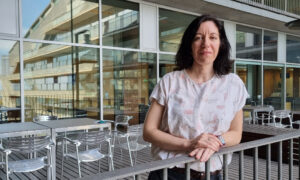
After the Lecture: Cultivating the information ecosystem
Science writer Kai Kupferschmidt reflects on the roles we play in achieving science literacy, giving us ‘nerd immunity’
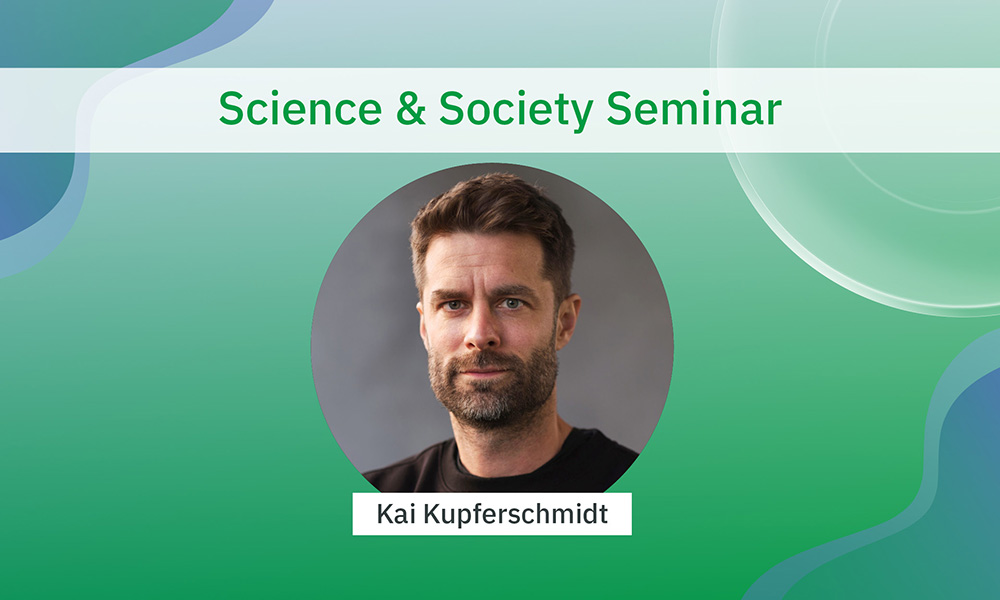
More than 200 people attended the most recent EMBL Science and Society Seminar, ‘Nerd Immunity: Journalism in the Time of Covid-19’. Science journalist Kai Kupferschmidt made the case for accurate, clear, and contextualised science communication – especially during a pandemic – so that evidence-based decision making can happen at all levels from government policies to personal choices.
Kai prefaced his talk by noting that the COVID-19 pandemic is still going on, with 3 million infections and 70 thousand deaths a week worldwide – likely to surpass a total of 4 million deaths in the next month. He went on to dissect the causes and potential consequences of disparate personal choices regarding masks, vaccines, and other public health factors that seem stuck in ‘tribal’ divides. Quoting epidemiologist William Hanage of the Harvard T.H. Chan School of Public Health, Kai said, “It’s a little like watching a zombie movie in which half the people can’t see the zombies and keep demanding to know what the fuss is about.”
After the lecture, Kai shared a bit more about the elements of building a stronger information ecosystem, his experiences covering COVID-19, and even his own vaccination experience.
A lot of friends have had a day or so of side-effects from their vaccinations, but my experience was not like that, and seemed strangely anticlimactic. Having written about the hope for vaccines – how they’re produced, the various studies, their release, and the gradual uptick in rates – when I finally got it, it felt a little like: “That was it?”
One notable thing about this pandemic is that the rich countries were just as powerless as poorer ones – or even more so – when it came to using public health and social interventions to fight this virus.
We need to keep vaccines from becoming an ideological marker.
We have to empower people to better judge information. You don’t want them to just trust you; you want them to think for themselves.
I wrote a piece a few years ago about what we know scientifically about how to convince people to get vaccinated. Some psychologists demonstrated that it could help to show pictures and emphasise the consequences of the disease you are trying to prevent. However, in our current climate, I think this approach might actually create a backlash in some people. Still, I find it remarkable how little I have seen of the terrible human toll this pandemic has taken.
You have to accept that people may make a decision based on their personal value systems that is different from what you would want them to do. But if it is an informed decision, then that is something we live with.
As humans, we find stories more persuasive than data – hearing about a son or daughter who has had some really severe reaction from a vaccine, for example. It does something that the data doesn’t do.
I think transparency is really important. I wrote very early on about the AstraZeneca vaccine. Parts of science journalism were very hesitant to write about the potential side-effects because there was a feeling it could turn out to be nothing. But that backfires very easily.
Scientists, journalists, governments, and the public are all part of an information ecosystem in which science information is constantly being created, shared, questioned. There is something fundamentally wrong in how this ecosystem works at the moment. It has to do with the ways we minimise the complexity.
On a very complex level, we have overemphasis on results rather than the process of science. By doing this, we are constantly misinforming the public about how science functions. The acceleration of science during the pandemic showed how this doesn’t work. We start to value new information over good information.
If you only start to communicate in a crisis, you have already missed the boat. The trust you are trying to build in a crisis is trust that you should have built before. It is between the pandemics where most of the important work happens.
My article in Die Zeit has an interesting history. I originally wrote it as a thread on Twitter, where it went viral, so the editors asked if I could write it as a piece. This was when we saw the deaths from Iran and growing cases in Italy. It just became very clear to me – in those days in the middle of February – the mood was shifting. Some people felt we could still contain this, but I could see this was going to be a global problem.
When you’re in the middle of an epidemic, it’s like looking at the light from a distant star. The epidemiological picture you’re seeing is actually one from the past. It’s the infections that happened two weeks ago.
That’s one irony of a pandemic. It’s global, but you have to act locally.
There was a point in the pandemic when I was writing that this is coming, and it felt like nobody was taking it seriously. Some people were, of course, but it felt like so many could not grasp the gravity of the situation. What can I do? Am I doing enough? That was a tough time.
I wanted to do something in German that was accessible – more than translating my articles. It was a little bit like therapy for me, too. The podcast format allows you to communicate in a way that you can’t in an article. In some ways it got closer to how I communicate on Twitter.
I always wanted to be a journalist. I started reading popular science books by authors like Steven Pinker and Richard Dawkins as a young boy. Everyone told me that if you want to be a journalist, don’t study journalism – study something you can write about.
As vaccinations go up in Germany, I can already feel that people are ready to move on. But getting the vaccine is a privilege. And the absolute mark of privilege is that we don’t even think about it. But the pandemic isn’t over.
My biggest worry is that we have helped create these more transmissible and pathogenic variants, but now – though we are protected – this will cause a lot of devastation in countries that don’t have the same access to the vaccines.
The good scenario here would be that you still see some infection in small waves, but not a lot of deaths. But the other possibility is that we do see variants on the rise, together with waning immunity, making resurgences possible that lead to a number of deaths. We could always get back to the point where people pretended we were at the start: that we can treat it just like the flu. But at that point, COVID-19 can be managed.
